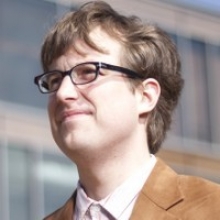CEE Seminar: Environmental & Energy Applications of Graphene Oxide Nanoarchitectures

Associate Professor
Environmental Engineering
Paulson School of Engineering & Applied Sciences
Harvard University
Abstract: Here, we present two methods to control the interlayer spacing of ultrathin graphene oxide (GO) laminates on the nm-scale and discuss their potential environmental and energy applications. The first method involves vacuum filtration followed by UV, HI, or ultrasound reduction to control GO laminate nanochannel dimensions on the Angstrom-scale. The nanochannel dimension determines the permeability and selectivity, which makes it a versatile membrane material. The second method involves Langmuir-Blodgett deposition and a novel 2-D phase analysis technique to control GO laminate wrinkle height between 1-20 nm. Wrinkles act as a spacer preventing face-to-face aggregation, which improves the specific capacitance of 3-D electrodes.
Bio: Chad D. Vecitis is an associate professor of environmental engineering at the Paulson School of Engineering and Applied Sciences, Harvard University, where he has been actively involved in teaching and research since 2010. Vecitis received a bachelor's degree in chemistry from Johns Hopkins and a doctorate in chemistry from the California Institute of Technology. His research involves development of novel technologies including (re)active antifouling materials, carbon nanoarchitectures for membranes and electrodes, interfacial processes in the environment, fate and transport of emerging contaminants, advanced oxidation processes, electrochemistry for energy and the environment, and application of analytical and characterization techniques in environmental science and engineering. Along with students and colleagues, he has published over 50 peer-reviewed journal articles. Currently, Vecitis is teaching water engineering, advanced water treatment, and environmental nanotechnology. He has been invited to discuss his research at many universities, institutions and symposia, and his research program is recognized internationally.
Share
Download
Upcoming Events
-
EECS Seminar: Random Thoughts After More Than 60 years in the Trenches
-
MAE 298 Seminar: Machine Learning Acceleration of Turbulent Combustion and Nonequilibrium Flow Predictions
-
CBE 298: Green Steel: Design, Supply Chain, H2 Storage and Dispatch Strategies
-
MSE Special Seminar: Iron-ing out the Details - Microbial Transformations of Earth’s Most Abundant Element
-
MSE 298 Seminar: Intelligent Learning Strategies for Thermal Science in the AI Era
